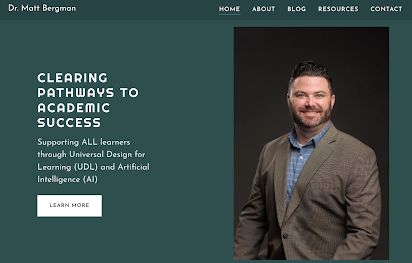Several years later, I confidently applied for a leadership position. Instead, I was greeted by comments about my lack of experience and worth as an educator. It was frustrating to be discouraged by some of the very people who were supposed to encourage, mentor, and help me. In hind sight, I now realize that this was an opportunity to see my true passion - educational technology.
I made the transition into a formal educational technology position about four years ago and have survived through a parade of four different bosses. Each time the director position became available, I was passed up for a variety of reasons. It has been difficult to stay positive and motivated after so many different disappointments; however, this leadership journey of interviewing 50 leaders in a year, would have never started without disappointment.
Perspective (Not Image) is Everything!
Andre Agassi made the Cannon Camera slogan "Image is Everything" famous in the 1980's and 1990's. Unfortunately, many leaders forget about the power of perspective. Our perspective influences our words, actions, and interactions with others. How we view our world (and ourselves) determines how we impact others - either positively or negatively.
 This point was reinforced by a recent experience I had. I sat in the office of one of the most effective leaders I have ever met, struggling with another professional disappointment. He empathized with my frustrations and even offered advice, but he also reminded me of the importance of perspective.
This point was reinforced by a recent experience I had. I sat in the office of one of the most effective leaders I have ever met, struggling with another professional disappointment. He empathized with my frustrations and even offered advice, but he also reminded me of the importance of perspective.He told me that I had two options:
- Feel sorry for myself and "take my ball and go home"
- View this as an opportunity and "grab the ball and play."
How I reacted and perceived the situation was up to me, but it could have personal and professional consequences. I could view it as an opportunity to grow or nosedive into a sea of depression. It was my choice.
Choose Your Weapon
It's okay to be sidetracked and disappointed by rejection, discouragement, and failure. You are human! Leaders have to learn how to quickly process negative situations, which often begins with changing your perspective. My father once said to me, "when everyone isn't measuring up, it's time to adjust your yardstick." In other words, he was saying that it is important to recalibrate your expectations and perspective. Your perspective - to see or fail to see opportunities - can determine your leadership ceiling.
After interviewing many wise leaders, I have learned several strategies for changing your perspective:
- The 24 Hour Rule - give yourself 24 hours to be as angry, hurt, and disappointed as you want. After that, you need to let it go.
- Avoid the Pity Party! It is hard not to feel sorry for yourself and even try to recruit others. As a leader, you have to take the high road and learn what is appropriate and not appropriate to say. You have to avoid clouding your perspective with pity.

- Optimism - Many of the most effective leaders that I have interviewed have had an optimistic view of life. It is important to see the opportunities in difficult situations. How can you inspire others with a negative attitude and perspective? Optimism grows confidence and others, fueling their ability to achieve what they felt was impossible.
- You Never Know Who's Watching! How we react to difficult situations not only tests our character, but it can also serve as predictors of future behavior and decisions. In other words, how you handle a minor discouragement can predict how you might react in a more stressful situation. Everyone has an audience. We never know how our reaction may inspire future opportunities. Treat each trial as if you were at a rehearsal for your next career move.
- Remember Leadership is a Process! Leadership is a process. Every leader that I have spoken with has emphasized the importance of experience. There is a reason why you must be 35 years old to be elected as US President. You must gain life experience before you can lead one of the greatest countries in the world. How do you gain experience? By using every moment as an opportunity.
Conclusion






Thank you for this post! Sometimes you aren't seen as an expert in your own backyard for some reason. Know, that you are revered as one of the top UDL Cadre and I so appreciate your posts, blog, and twitter feeds. I can relate to being passed up. It helps me to keep perspective in that I ultimately work for a boss (man upstairs is always working things out for our good).
ReplyDeleteMatt, I empathize with you and also thank you for this post. I, too, was passed over and not chosen numerous times when trying to move ahead. After much reflection, I realized something about interviews. I share it with you, as it helped give me some of that needed perspective, about which you write so well:
ReplyDeleteIf you get called for the interview, it means you are qualified for the job; they wouldn't waste their time talking to you if they didn't think so. Everything after that is interpersonal chemistry and organizational politics -- things over which you have little control. I learned to accept that many are called and few are chosen. When the situation and the time are right, you'll get the spot. Have satisfaction that they are considering you seriously and continue to make the best of your present situation.
Thank you for the encouragement everyone!
ReplyDelete